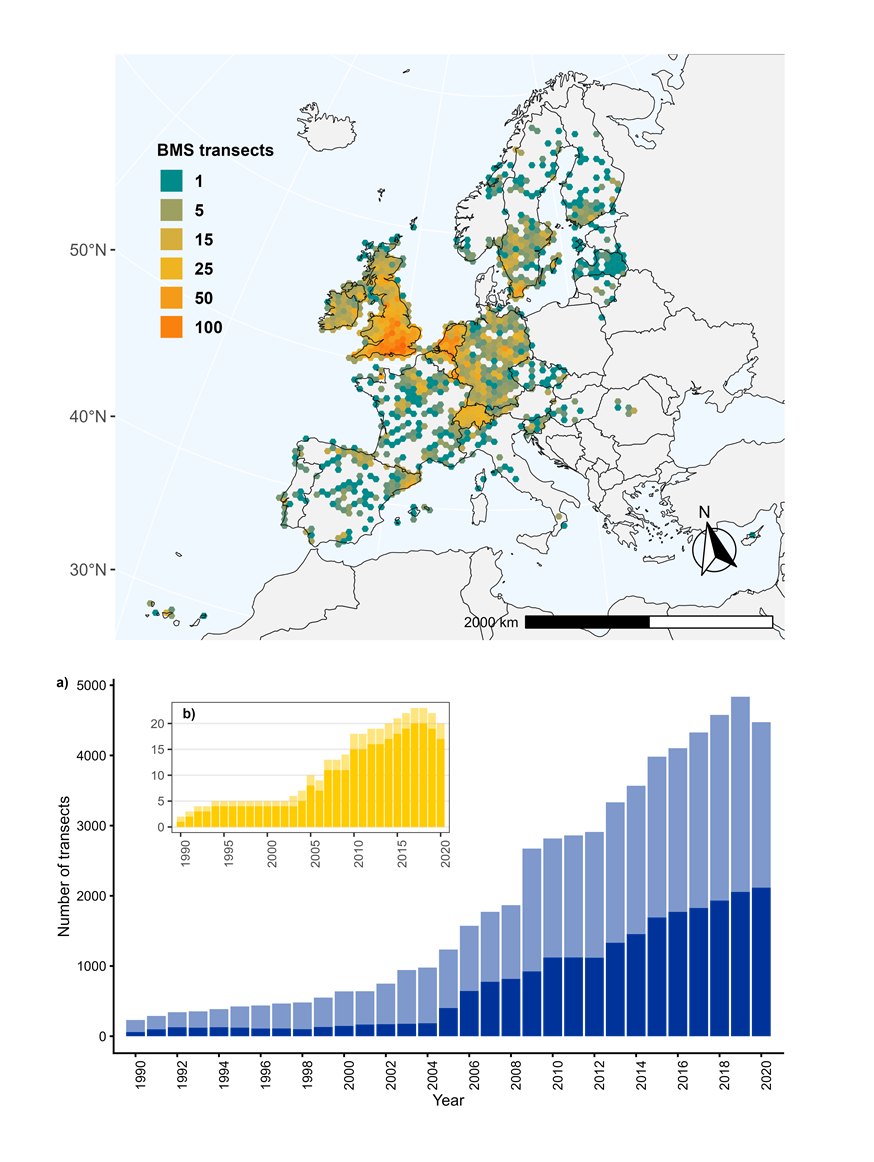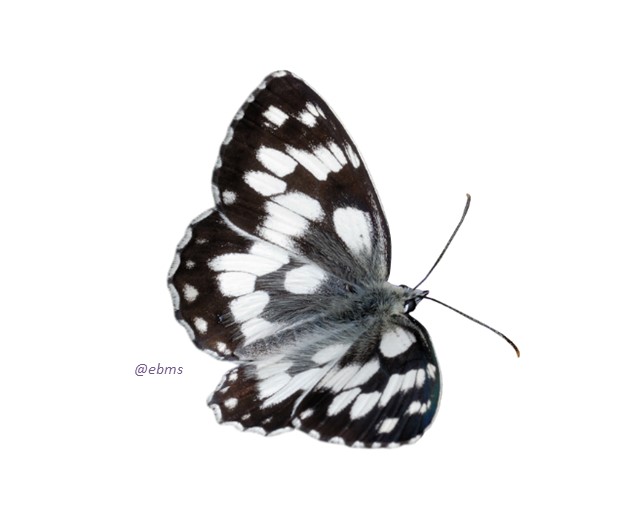Butterfly Monitoring Schemes
Butterfly Monitoring Schemes (BMS) record butterflies every year, by counting them along fixed routes called transects. This vital information is gathered mainly by citizen scientists (volunteers) who have been trained (or are self-taught) to recognise and identify species and follow the protocols of monitoring along butterfly transects.
Butterflies are one of the best-monitored insect groups in Europe thanks to the long-term monitoring schemes that have been running for decades in some countries. The first Butterfly Monitoring Scheme began in the United Kingdom in 1976 (UKBMS), since then, this methodology has been adopted in many other European countries to monitor butterflies. All use the same standardised survey method, designed by Ernie Pollard, of the Monks Wood Experimental Station in the UK (Pollard and Yates, 1983). The transects (fixed routes) are counted repeatedly through the butterfly season, ideally every week but often less frequently due to the availability of volunteers or due to unsuitable weather. Statistical modeling techniques have been developed to account for uneven sampling and enable standardized assessments of changes in abundance over time. The methodology provides robust data to identify population trends and assess the status of butterfly species.
The eBMS network includes several partners that provide their data every year from the different National Butterfly Monitoring Schemes throughout Europe. Currently, there are 28 BMS, with 20 that are officially part of the eBMS distributed across 23 countries.
Click on the countries to see their National BMS websites and discover more about their butterfly monitoring, how to join and contact them.
Austria - AUBMS
Austria (Viel-Falter) - VFBMS
Belgium (Flanders) - BEBMS
Bulgaria - BUBMS
Croatia - HRBMS
Czech Republic - CZBMS
Estonia - EEBMS
Finland - FIBMS
France - FRBMS
Germany - DEBMS
Hungary - HUBMS
Ireland - IRBMS
Latvia - LVBMS
Lithuania - LTBMS
Luxembourg - LUBMS
Malta - MABMS
Norway - NOBMS
Portugal - PTBMS
Romania - ROBMS
Slovenia - SIBMS
Spain (Catalonia) - ES-CTBMS
Spain (Zerynthia) - ES-CBBMS
Spain (excl. Catalonia, Zerynthia) - ESBMS
Sweden - SEBMS
Switzerland - CHBMS
The Netherlands - NLBMS
UK - UKBMS
The map shows the density of Butterfly Monitoring transects visited per 50km grid across all schemes that have contributed to the eBMS database (as of v4.0, data up to 2020). Densities are calculated from sites that have been visited at least once since 2000. Graphs: a) Number of Butterfly Monitoring transects that contributed to the European Butterfly Indicator (1990-2020), where schemes within EU27 are represented in dark blue and non-EU schemes in light blue. b) Number of Schemes contributing, with 24 BMS operating across 20 EU27 member state.

If you want to set up a new transect in one of these countries, please follow the links in each country and try to contact the main coordinator. Some countries have their own online system to manage national Butterfly Monitoring Schemes.
For requesting data from the eBMS database, please go to the page eBMS data access policy to read and see how to do this process.
